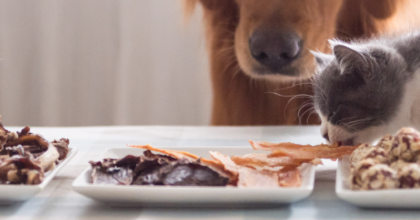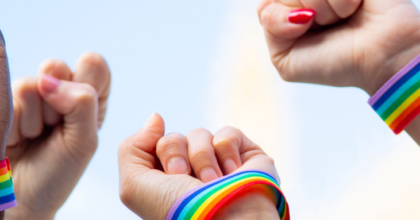Mintel identifies five key European consumer trends for 2016
Looking ahead to 2016, Mintel’s Senior Trends Consultant Richard Cope discusses the five key European consumer trends set to impact the market, including implications for both consumers and brands in the year ahead.
On the Waterfront
Shortages will make water an increasingly precious and politically charged commodity, encouraging innovation in sourcing, recycling and manufacturing.
“In 2016 we will feel the agricultural fallout from an extreme period of global drought, encompassing areas as diverse as California, Alberta, Brazil and Thailand. European suffering might not amount to much more than a shortage of certain foodstuffs from drought hit areas elsewhere, but innovations and corporate social responsibility practices in water sourcing, recycling and conservation are going to come to the fore in the European market.”
“Consumers are alive to the need of water conservation for their own needs and will warm to brands that can help achieve this at a personal and public level. In the household sector consumers are keen to conserve, with Mintel research highlighting that a significant proportion of Spanish (81%), French (74%) and German (68%) consumers are interested in an ultra-concentrated washing up liquid. What’s more, across Europe, consumers are open to fewer water dependent and indeed waterless products in beauty and personal care. Two in five (38%) UK consumers and 33% of Italians say they’d be interested in double concentrated bath or shower products and 33% of French 16-24s expressing interest in dry use soap, bath and shower products.”
“The obvious impact of water shortage on agriculture is lowered production, job losses and shortages – and higher prices – in wine, beef and rice. As a result, we’ll certainly see more concentrates in coffee, other beverages, seasonings and water-sourcing product alternatives.”
Space-Time Continuum
Space and time are at a premium, becoming new currencies in their own right and creating new marketplaces.
“In an urbanising world of high-density living, access – rather than outright ownership – makes sense. As part of a wider trend towards sustainable, affordable sharing, some 57% of UK consumers say they always or sometimes borrow things instead of buy them and 34% attend ‘big swap’ or ‘swishing’ events to swap items they no longer need with others. These same factors are playing out in leisure, where 24% of US Millennials have stayed in a home share, home rental or home swap instead of a hotel.”
“‘Monodose’ products will be positioned as single serve options with retailers making a virtue of small batch production as a way to save space, energy and materials.”
“The spread of Uber is sparking protest and competition, whether or not legislators clip its wings the model is here to stay. Expect more space initiatives like France’s Parkego and Spain’s LetMeSpace start-ups – which help people to make a profit from their unused parking spaces. Extending rental agreements to everything from clothes to DIY tools will appeal to space-conscious consumers, whilst ‘monodose’ products will be positioned as single serve options with retailers making a virtue of small batch production as a way to save space, energy and materials.”
“A general point of good news for the entire leisure industry, is that with the advent of smaller, or more cramped homes, there will be greater onus – and value – placed on venues outside of the home to provide entertainment. The pressures causing this trend represent a slow creep, rather than an annual explosion, but saving time and saving space will become hallmarks of consumer savviness and common currencies for the marketing language of campaigns.”
My Mind’s Eye
Virtual and augmented reality technologies enter our homes and businesses to entertain, trial and train.
“A host of virtual reality (VR) and augmented reality (AR) headset launches will see consumers enter immersive gamescapes and layer entertainment or educational content over their normal field of vision. Mintel research highlights strong potential, with as many as half (50%) of UK consumers already aware of virtual reality headsets and 31% expressing an interest in using them – a figure which rises to 53% of 16-24 year olds. Demand goes beyond usage to ownership, as today, some 11% of UK consumers say they are interested in buying a head mounted display.”
“Our excitement would be tempered if these innovations were confined to in-home gaming – and to those players with the funds to afford them. But they also present businesses with an opportunity to provide in-store experiences and reassurance, areas which consumers continue to value. ”
“Growing interest will inspire more businesses to embrace this technology as a means of creating immersive advertising, as Boursin has done with its Sensorium ‘refrigerator rollercoaster’ or proving sustainability credentials, such as the Nescafé 360o app that takes you to its farmland. While cost will preclude VR and AR from entering everyone’s homes, it will be increasingly embraced by businesses seeking to variously entertain and reassure consumers, in a bid to win their attention and their custom.”
Pond Filter
Fears surrounding the Transatlantic Trade and Investment Partnership (TTIP) will cause consumers and brands to react by favouring purer and more natural products.
“The TTIP is the proposed free trade agreement between Europe and the US, with the avowed aim of making it easier and fairer to export, import and invest overseas. Its opponents believe that by reducing the regulatory barriers to trade for big business, the treaty will weaken food safety law and environmental legislation, potentially flooding the market with genetically-modified processed foods, untested beauty products and produce treated with pesticides and growth hormones. For some consumers, this will trigger a reaction where they opt to go local, go natural or go DIY instead.”
“the media storm surrounding it will be enough to get consumers to think – and look – twice at their food, beauty and cleaning products.”
“Ahead of this, Mintel research shows consumers are already striving for an all-natural lifestyle. Across Europe opposition to GMO food is already strong, with 36% of German and 35% of Italian consumers saying they would never buy it. As is an appreciation of organics because they do not use pesticides, with 50% of French and 46% of German consumers agreeing that organic fruit and vegetables are safer because they do not contain pesticides. It is our belief that these attitudes will harden across Europe, should consumers be faced with the spectre of more modified and chemically treated produce and products.”
“Going forward we may see more US brands seek to counter opposition and remove certain ingredients to appeal to EU consumers. The agreement may strengthen the position of European food, leading to a rise in patriotic or local purchasing, with craft products growing further in sectors like soft drinks, coffee and cooking sauces. Expect to see new ‘natural’ protein sources like seaweed, algae and beans championed. Alternative sweeteners such as monk fruit will flourish and we’ll see more plant-based dairy products and gluten and grain-free coconut and cauliflower flours moving into the mainstream. We’ll see brands react to consumer concerns by offering greater transparency in beauty and household ingredients. Also, a shift towards more ‘kitchen cosmetics’ as consumers seek to eat themselves pretty with those foods promoting their European or local purity credentials. Whether or not the TTIP gets ratified in 2016 is something of a moot point, the media storm surrounding it will be enough to get consumers to think – and look – twice at their food, beauty and cleaning products as well as beginning to explore more natural alternatives.”
Archbeacons
Beacons can flourish in retail and leisure by making consumers feel in-the-know and ahead of the game.
“Beacons are here and they are set to become more embedded in our society. These short-range location devices typically interact with mobile devices such as smartphones and tablets. In retail, beacons can welcome people to stores, inform them of offers, remind them of items they need to buy, or have put on a wish list. Stores are able to track customer hotspots and dwell time and measure the effectiveness of promotional campaigns and store layouts. They can also provide more detailed information for loyalty apps.”
“Mintel research indicates that Millennials will be the early adopters as they show warmer, more encouraging attitudes towards beacon technology. A third (33%) of UK 16-34 year olds agree they would be willing to give brands that they like access to their ‘real-time’ location to receive more relevant offers. Connectivity still has some way to go in Europe, with Mintel predicting that subscribers to broadband and 3G services will continue to grow strongly in 2016, especially in Spain (+11.6%), France (+11.4%) and Germany (+8.3%). Uptake of beacon technology can be part of that story. While we ultimately believe that customers will embrace beacons because they meet their desires for convenience, personalisation and gamification, we are undoubtedly at a juncture where consumers need to be educated and reassured as to their privacy and wooed with incentives. Once consumers realise that they are the ones in control, the technology will be embraced for the convenience, exclusivity, economy, playfulness and serendipity it can deliver.”
Interviews with Senior Trends Consultant, Richard Cope, are available on request from the press office.
The full copy of Mintel’s Five Key European Consumer Trends for 2016, including a section on original product designs and concepts, is available to download free of charge here. Feel free to add this link to your article.
For the latest in consumer and industry news, top trends and market perspectives, stay tuned to Mintel News featuring commentary from Mintel’s team of global category analysts.
-
Discover your next big breakthroughGet smart fast with our exclusive market research reports, delivering the latest data, innovation, trends and strategic recommendations....View Reports
-
2026 Global PredictionsOur Predictions go beyond traditional trend analysis. Download to get the predictive intelligence and strategic framework to shape the future of your industry in 2026 and beyond. ...Download now
-
Are you after more tailored solutions to help drive Consumer Demand, Market Expansion or Innovation Strategy?Ask for a customised strategic solution from Mintel Consulting today....Find out more































